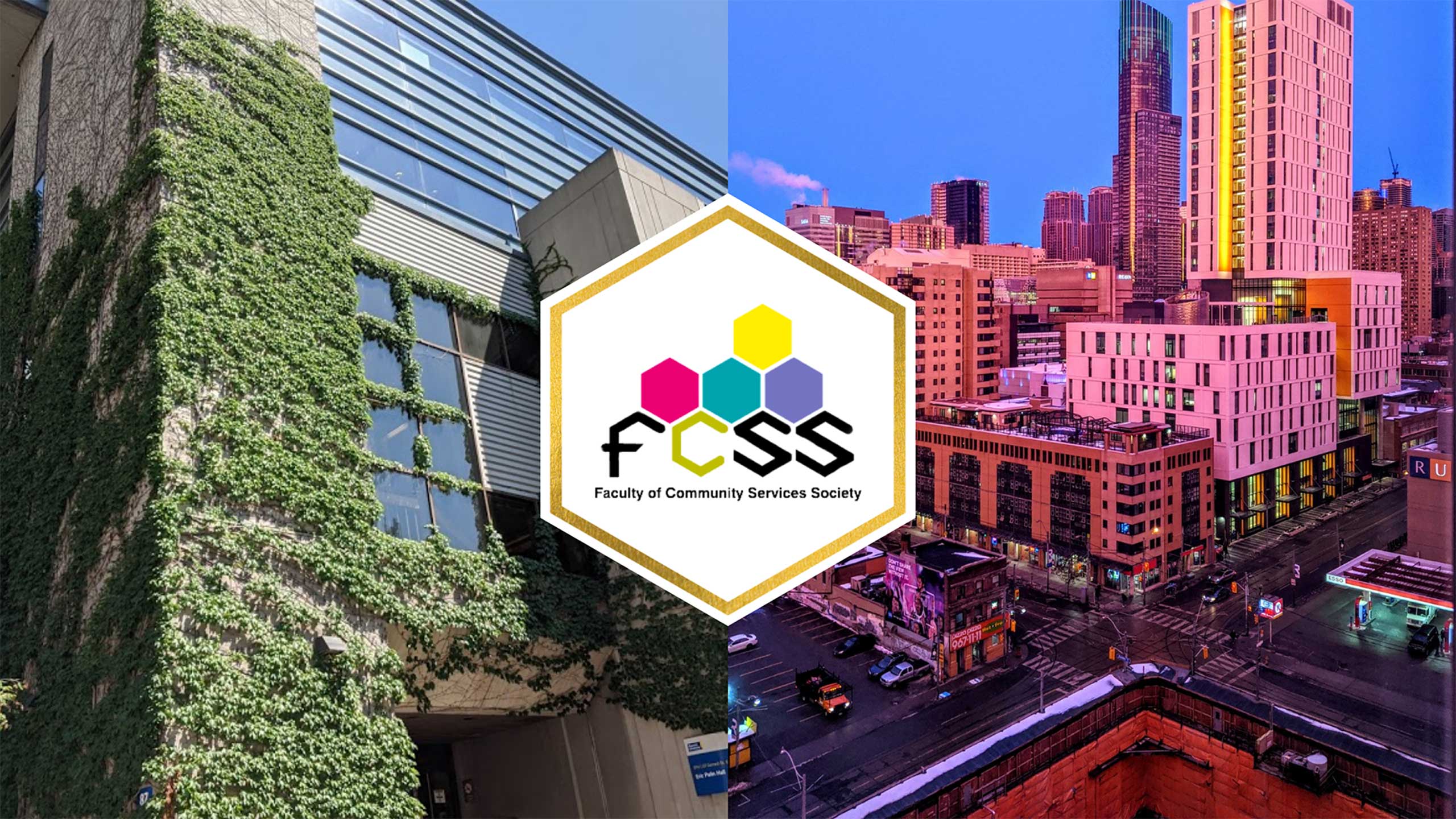By Nishat Chowdhury
Despite the challenges of the COVID-19 pandemic, the Faculty of Community Services Society (FCSS) increased their social media following and created more student engagement within the Faculty of Community Services (FCS) than ever before, according to student members.
At the Feb. 26 Board of Directors’ (BoD) meeting, board members passed a motion to support the FCSS’ referendum in fall 2021, in which FCS students can vote for or against paying a student levy fee to the society.
Student levies are needed to fund student life in faculties, including frosh, academic support, networking events, conferences, merch lines and more.
The FCSS has been operating without a student levy since they became an official student society in 2017, said Jacob Circo, a fourth-year urban and regional planning student and a senior representative for the School of Urban and Regional Planning at the FCSS. Without a levy fee, they are unable to adequately fund student life in the faculty, according to Circo.
Despite the FCS being the second-largest faculty at Ryerson with over 8,200 undergraduate students, according to the FCSS website, their budget is less than $20,000 and they are the only student society at Ryerson without a levy fee. In comparison, Ted Rogers School of Management (TRSM) is the largest faculty at Ryerson with almost 13,000 full-time undergraduate students. Ted Rogers Students’ Society’s budgeted student levy was $600,000 in the 2020-21 school year.
Second-year urban and regional planning student and co-referendum lead Daniel Barkin said the FCSS has been relying on limited funding from the FCS dean’s office, which they use very conservatively.
“We want [the funding] to benefit student life in our faculty but also make sure that we’re not using up our entire budget for the year,” said Barkin.
This school year, the FCSS created three new teams—a governance/policy, referendum and unity squad—to strategically reform the student society in preparation to apply for a referendum to be approved by fall 2021 by the Board of Governors (BoG).
“Mental health support, wellness support, fun social events to meet and network with people, that’s exactly what we’re here for”
From now until August, when the referendum application is due, the new teams under the steering committee are responsible for making sure the FCSS has a constitution, by-laws, survey results, supporting policies and support letters for the BoG. The Office of the Vice Provost, Students (OVPS) is working closely with the FCSS to help get their documents finalized.
The FCSS steering committee decides on the priorities of the FCSS team. Their main mandate is planning for the levy referendum.
“The point of that is to ensure that we meet all the checkboxes of what the [BoG] is looking for. If we do that, in most cases, it always passes,” said Circo.
Using his expertise in graphic design, Barkin oversaw the redesigning of the entire FCSS website to better fit in with Ryerson’s branding toolkits.
Through social media, the unity squad at the FCSS hosted giveaways, game nights and, for the first time, collaborative events with other students’ societies across campus. In previous years, the FCSS didn’t have formal relationships with other student unions like the Ryerson Students’ Union or the Continuing Education Students’ Association of Ryerson, Barkin said.
“We didn’t have strong relationships with our course unions within the faculty so that really started to change over the past two years,” said Barkin.
When Barkin was brought on the steering committee as a marketing chair in November 2019, the FCSS had around 50 followers on Instagram. Now, the FCSS has over 1,100 Instagram followers and over a thousand of them are FCS students, according to Circo.
To better improve student life during the pandemic, the FCSS hosted a two-week orientation for first-year students with 22 virtual events, the most they’ve ever done. Additionally, they hosted wellness events, academic workshops, and career and professional development seminars for FCS students.
“We have to believe that the work we’re doing is work that needs to be done, and…is for the benefit of all students in the faculty”
Barkin believes the FCSS appeals to students by focusing on wellness events to help relieve stress and encourage better self-care for students.
“Mental health support, wellness support, fun social events to meet and network with people, that’s exactly what we’re here for. We’re here to support student life…so I really believe that’s what appealed to everyone,” said Barkin.
Rido Creer, nursing junior representative and unity squad team member said the FCSS took proactive steps to increase their social media presence and outreach by reaching out to lower-year students specifically through social media.
Senior members on the FCSS reached out to Creer last semester via Instagram, asking if he was interested in joining the team. After joining and working closely with the committee, Creer realized the strategy is a great way to get first-year students like himself involved with the school community at a time when students feel disconnected from student life due to virtual learning.
“It’s catering to first-year students who don’t have friends, who may not have those connections yet,” said Creer, a first-year collaborative nursing student. “Especially in a virtual school setting and during a pandemic, being able to connect with the faculty and just being able to connect with others around you despite being online was a really helpful way for the FCSS to grow.”
The current senior members on the steering committee are training the lower-year students to continue using social media to build a community that will last for years to come.
Creer said he is confident Barkin and other lower-year members on the committee will continue to help the FCSS thrive, and the fourth-years are leaving the society in good hands when they graduate.
“We have to believe that the work we’re doing is work that needs to be done, and that the work we’re doing is for the benefit of all students in the faculty, which is what drew me in the first place,” he said.










Leave a Reply